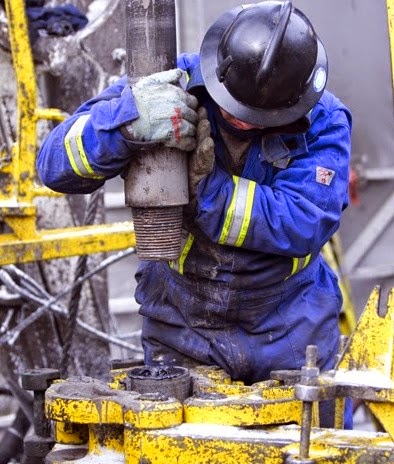Crude oil exploration in Nigeria might be suspended following oil company’s resolve to cut down on spending as a result of the oil crash, a PwC report says.
Excerpt from Punch:
Part of the potential impact of a drastically reduced oil price on Africa is that oil companies may be forced to suspend further exploration in Nigeria, PricewaterhouseCoopers has said.
In a new report entitled, ‘Fit for $50 oil in Africa’ the company said oil and gas explorers must rethink their capital expenditure on exploration activity across the African continent in the wake of the significant drop in the global oil price.
It noted that Africa had seen substantial successes in the exploration for hydrocarbons over the last decade, including the entry of new country players with East Africa joining the ranks of their West African neighbours.
In 2013 alone, six of the top 10 global discoveries by size were made in Africa – including some of the largest discoveries in the last decade in East Africa, according to the analysis.
PwC Africa Oil and Gas Advisory Leader, Chris Bredenhann, said, “Oil and gas explorers will be looking at their budgets and deciding where to allocate their limited capital spend given the substantial decline in the oil price. Overall, low oil prices could have an impact on production undermining certain players in the market,”
“Oil and gas companies now need to plan for the upturn that is sure to follow to ensure that the potential boom does not go bust,” said Bredenhann.
According to the report, in Nigeria “additional exploration may be put on hold; however, development projects are expected to continue as planned.”
PwC said the challenges facing oil and gas companies in Africa continued to be diverse and numerous fuelled by regulatory uncertainty, fraud and corruption, poor infrastructure, and a lack of skilled resources, among others.
Bredenhann said, “While oilfield service companies will venture to cut back on spending, they will also be under extreme pressure by the oil companies to drop their prices.”
According to the analysis, the following oil and gas players in the market are expected to be most likely at risk from the drop in the oil price: frontier areas, host governments, major gas projects and oilfield service companies.
“Frontier areas around the world are expected to suffer from delayed development in the near-term. These include technically difficult projects that require more spend than conventional production such as deepwater, sub-salt, shale gas and enhanced oil recovery ventures.
“Countries that may see frontier project delays include offshore South Africa, sub-salt Congo and Angola, offshore Tanzania and shale gas in South Africa. Shale gas, in particular, could move forward if the gas price was not 100 per cent fully-indexed to oil.
It should be noted that oil companies do not make their investment decisions based on short-term, cyclical price changes but rather on wider price trends given the long-term nature of these investments.
Major African gas projects are also expected to be under increased scrutiny, as oil-linked LNG prices have dropped significantly, said PwC.
“While we don’t envision that the major LNG projects in Mozambique and Tanzania will be cancelled outright, costs are a major concern for investors,” Bredenhann said.
At this time, governments would do well to place regulatory, legislative and fiscal policies in order so that they are seen as attractive regimes when the price recovers.
“Oilfield service companies will be hit hard globally, but Africa may be an especially vulnerable portion of their portfolios, states the analysis. Africa could pose further challenges due to difficult logistics and the lack of infrastructure.”
According to the report, overall exploration costs have already decreased significantly due to cost pressures, in particular seismic surveying and drilling. This is expected to lead to idle rigs as well as delayed and potentially cancelled projects.
“However, not all is doom and gloom. There are still numerous opportunities to invest in the industry within Africa. The greatest opportunity seems to lie within onshore exploration. There are still risks, but onshore exploration is also significantly cheaper.
“Aside from exploration, some players are moving ahead with development programmes, even though they have no plans to expand with exploration drilling. “We also see that there could be significant potential for firms that are strong in R & D,” Bredenhann added.
(adsbygoogle = window.adsbygoogle || []).push({});


